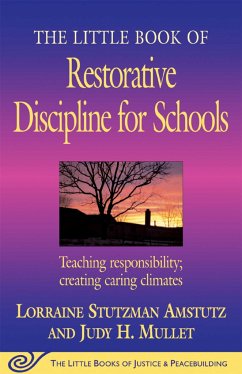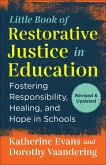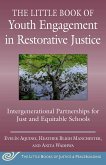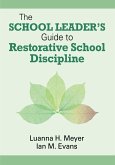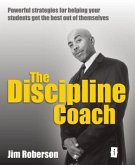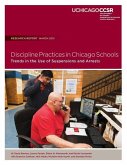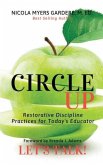Two educators show how restorative justice principles can be applied in schools, at all grade levels. The book provides applications and story illustrations which model this hopeful and effective approach to school discipline.
How can teachers and administrators better deal with discipline, punishment, bullying, truancy, and other issues? Can community-building begin in a classroom? The authors of this book believe that by applying restorative justice at school, we can build a healthier and more just society. With practical applications and models. Can an overworked teacher possibly turn an unruly incident with students into an "opportunity for learning, growth, and community-building"? If restorative justice has been able to salvage lives within the world of criminal behavior, why shouldn't its principles be applied in school classrooms and cafeterias? And if our children learn restorative practices early and daily, won't we be building a healthier, more just society? Topics include: * Why restorative justice * The role of discipline and punishment * Characteristics of peaceable schools * Flexible policies * Whole school training approaches * Class meetings * Truancy mediation * Bullying * And more! Two educators answer yes, yes, and yes in this new addition to The Little Books of Justice and Peacebuilding series. Amstutz and Mullet offer applications and models. "Discipline that restores is a process to make things as right as possible." This Little Book shows how to get there.
How can teachers and administrators better deal with discipline, punishment, bullying, truancy, and other issues? Can community-building begin in a classroom? The authors of this book believe that by applying restorative justice at school, we can build a healthier and more just society. With practical applications and models. Can an overworked teacher possibly turn an unruly incident with students into an "opportunity for learning, growth, and community-building"? If restorative justice has been able to salvage lives within the world of criminal behavior, why shouldn't its principles be applied in school classrooms and cafeterias? And if our children learn restorative practices early and daily, won't we be building a healthier, more just society? Topics include: * Why restorative justice * The role of discipline and punishment * Characteristics of peaceable schools * Flexible policies * Whole school training approaches * Class meetings * Truancy mediation * Bullying * And more! Two educators answer yes, yes, and yes in this new addition to The Little Books of Justice and Peacebuilding series. Amstutz and Mullet offer applications and models. "Discipline that restores is a process to make things as right as possible." This Little Book shows how to get there.

